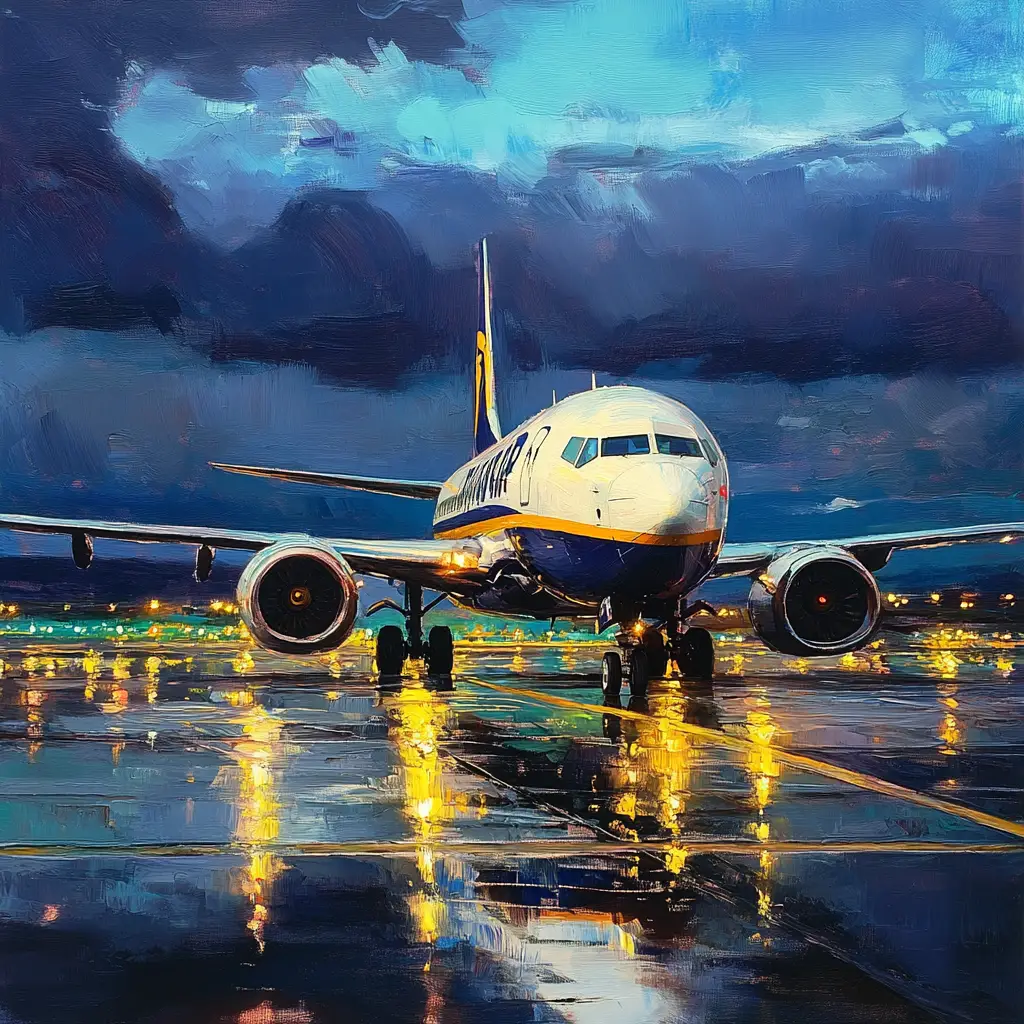Why is Michael O’Leary Important to the Aviation Industry?
Michael O’Leary is a well-known figure in the aviation world, largely due to his transformative role as the CEO of Ryanair, one of Europe’s leading low-cost airlines. Known for his innovative, sometimes controversial approach to business, O’Leary has significantly influenced the low-cost aviation model, making air travel accessible to millions more people across Europe. This article explores his impact on the aviation industry, his strategies at Ryanair, and the long-term changes he has helped establish in low-cost air travel.
Early Career and Joining Ryanair
Michael O’Leary, originally from County Westmeath, Ireland, studied at Trinity College Dublin and began his career as a tax consultant. In 1988, he joined Ryanair, initially as an advisor to then-owner Tony Ryan. Recognising the potential for an ultra-low-cost airline in Europe, O’Leary drew inspiration from Southwest Airlines in the U.S., a pioneer in low-cost air travel. His strategic insights and willingness to make bold decisions soon earned him the role of CEO in 1994, setting Ryanair on a path to rapid expansion and establishing his reputation as a key disruptor in the industry.
Transforming Ryanair into a Low-Cost Leader
Under O’Leary’s leadership, Ryanair embraced a strict low-cost model, focusing on efficiency and high passenger volume to offer some of the lowest fares in the industry. He implemented a range of cost-saving measures, including:
- Standardising Fleet: Ryanair operates a single model of aircraft, the Boeing 737, reducing maintenance and training costs significantly.
- Utilising Secondary Airports: To save on fees and minimise delays, Ryanair often flies to secondary or regional airports, passing on the savings to passengers.
- Charging for Extras: Ryanair popularised the “pay-for-what-you-use” model, charging passengers for additional services such as checked baggage, seat selection, and on-board food and beverages.
- Quick Turnarounds: O’Leary introduced strict policies to minimise time on the ground between flights, allowing for more daily flights and maximising aircraft utilisation.
These strategies helped Ryanair grow from a small Irish airline into one of Europe’s largest carriers. O’Leary’s focus on efficiency and affordability reshaped the airline industry by setting a new standard for low-cost operations, encouraging competitors to adopt similar practices.
Industry Impact and Popularisation of Low-Cost Travel
O’Leary’s success with Ryanair has had a ripple effect throughout the aviation industry, influencing other airlines to adopt the low-cost model. Competitors like easyJet, Wizz Air, and Norwegian Airlines developed similar approaches, creating a highly competitive market that drove down prices for consumers. Thanks to O’Leary’s innovations, affordable air travel became accessible to a much broader demographic, transforming how Europeans approach short-haul travel.
Moreover, Ryanair’s focus on secondary airports encouraged development in smaller regions, stimulating local economies and expanding tourism. The “no-frills” approach that O’Leary championed made air travel an everyday experience for many, altering the public’s perception of flying from a luxury to a common, affordable choice.
Criticisms and Controversies
O’Leary’s tenure has not been without controversy. His approach to customer service, employee relations, and additional fees has drawn criticism over the years. Ryanair has faced backlash for its strict policies, such as high fees for baggage and boarding pass reprints, which some passengers view as excessive. Additionally, Ryanair’s treatment of staff, particularly contract pilots and cabin crew, has been a subject of scrutiny, with critics claiming that cost-cutting measures compromise employee welfare.
Despite these challenges, O’Leary’s leadership has been instrumental in reshaping the aviation industry. His unapologetically direct style and business acumen have kept Ryanair at the forefront of the low-cost market, even as criticism has sometimes tested the airline’s reputation.
Recent Developments and Ryanair’s Future
In recent years, O’Leary has taken steps to address some of the criticisms Ryanair has faced, including attempts to improve customer satisfaction and enhance employee benefits. He has led Ryanair through challenges like Brexit and the COVID-19 pandemic, maintaining the airline’s resilience in a rapidly changing market. Going forward, Ryanair aims to expand its presence in Europe and enhance its sustainability efforts by investing in more fuel-efficient aircraft and setting carbon reduction goals.
Legacy of Michael O’Leary in Aviation
Michael O’Leary’s legacy in aviation is defined by his role in transforming Ryanair into one of the most successful low-cost airlines in the world. His pioneering strategies have made air travel more accessible and affordable, setting a new standard in the industry. While his methods have sparked debate, there’s no doubt that O’Leary’s influence will continue to shape the aviation industry for years to come.
Related Questions
How did Michael O’Leary change the airline industry?
O’Leary popularised the ultra-low-cost model, emphasising efficiency and affordability, which influenced many airlines to adopt similar strategies.
What are some criticisms of Michael O’Leary’s approach?
Critics often cite Ryanair’s customer service policies and high fees for extras as examples of O’Leary’s uncompromising approach to cost-cutting.
How long has Michael O’Leary been with Ryanair?
O’Leary joined Ryanair in 1988 and has served as its CEO since 1994, overseeing its growth into one of Europe’s largest airlines.




